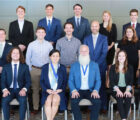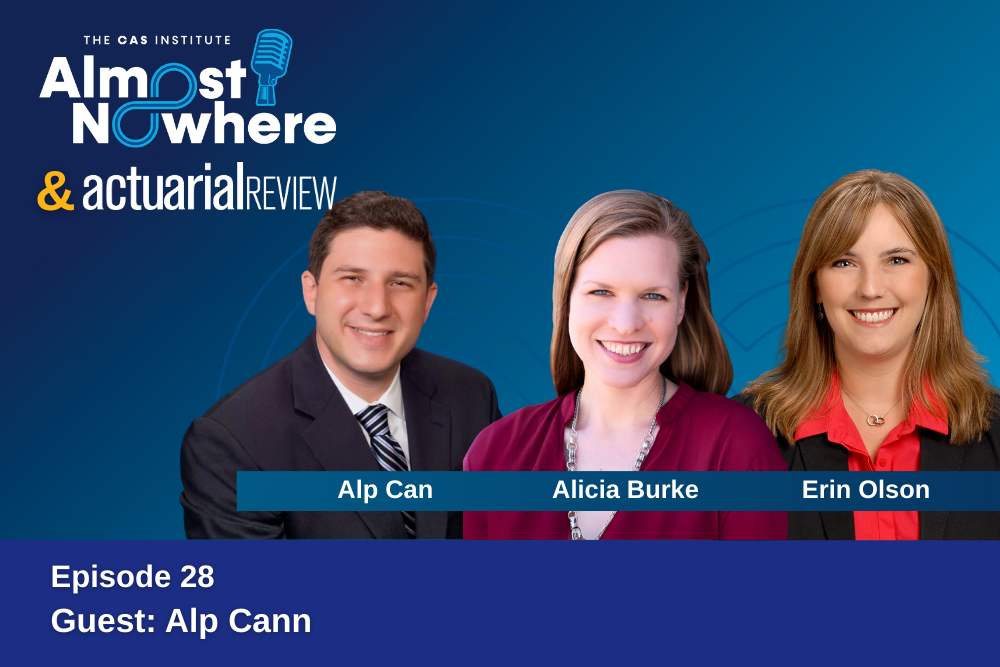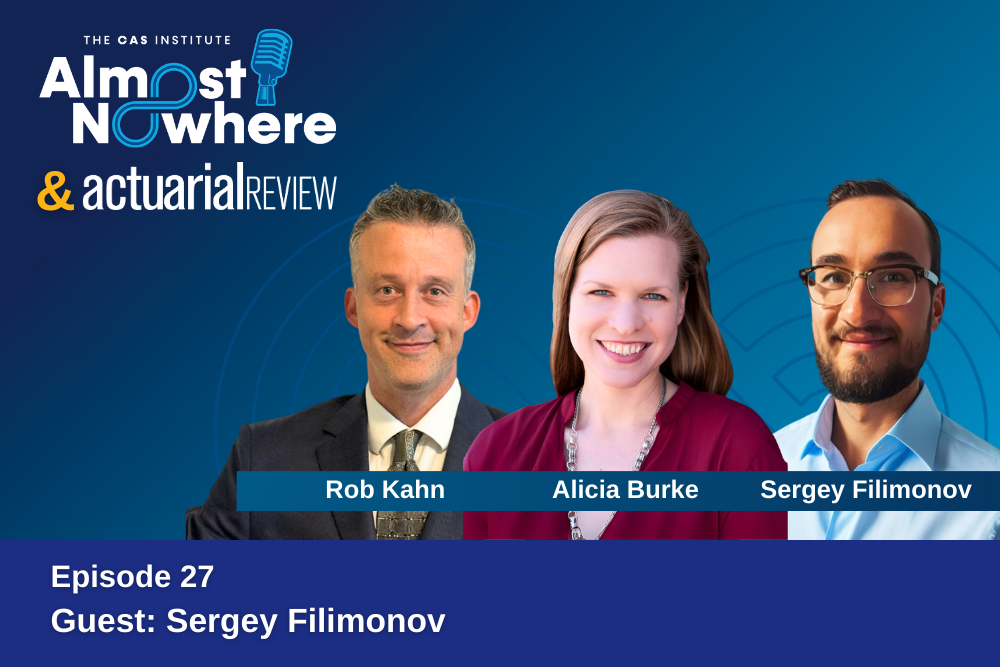
Volunteerism is critical to the CAS. While the CAS has a great staff, it is the volunteers who make and grade our exams, plan and deliver the programs at our meetings, write papers and articles reflecting our research, and manage our relationships with universities and other organizations. Volunteers strategize about our organizational needs and direction, determine CAS policies, award scholarships, build budgets and govern; in short, volunteers set the destination and chart the course in all aspects of CAS operations.
Each year, about one in three CAS members serve as volunteers. This level of member participation has remained constant for years, and it is a source of strength and pride for the organization. CAS leadership monitors the level of volunteerism and would certainly be concerned if it were to decline for any reason.
The CAS obviously benefits directly from all of this volunteerism. However, equally important, our dedicated volunteer workforce benefits our individual members and their employers. Here are five reasons volunteerism is good for all stakeholders.
1. Volunteerism creates community.
The collective effort and work of CAS members in the U.S., Canada and all over the world is a key element of our culture and knits us all together. Joining a committee or task force affords members the opportunity to meet and work with others outside of their immediate sphere. And, contributing time and energy to an organization gives one a sense of ownership in it, ultimately leading to a strong sense of commitment to it. This sense of community may start slowly with new members (although I certainly didn’t feel it when I attended my first CAS meeting), but it usually builds over time and over the course of one’s career. While some may feel that our strong sense of community is a pretty intangible benefit, it should not be underestimated as a force that sustains the CAS. Our volunteerism is core to our society. Other actuarial organizations have told me how much they envy this aspect of the CAS.
Over time, the CAS volunteer builds a strong network of lasting relationships.
2. Volunteers help develop the profession.
We all benefit when the actuarial profession is recognized and respected by our audiences. To maintain recognition and respect, the profession needs to be seen as continuously improving and developing, keeping up with changes in society, regulation and technology. The profession is advanced through continuing education, research and strategic planning, through which new ideas and approaches are developed and brought into the mainstream of actuarial practice. Members benefit from the ongoing and new opportunities that are created, and employers benefit when we contribute to them in valuable ways. The ongoing development of the profession would not happen without the volunteer efforts of our members.
Our greatest and earliest example is the creation of the Society itself, in which a group of early actuaries came together and devoted themselves to developing a constitution and membership criteria. Once established, volunteers took it upon themselves to write and present Proceedings papers, and still other volunteers dug deeper into the subjects, deciding to write discussions of these papers — and sometimes even discussions of the discussions! Volunteers wrote study notes, monographs and textbooks. Our contributions to the development of important new areas, such as risk-based capital and ERM have been significant, as have our contributions to predictive modeling. Today we are contributing to development in areas as diverse as climate change and automated vehicles.
3. Volunteering is a development opportunity.
Opportunities for advancing important professional skills abound in the volunteer’s life: Volunteers have the opportunity to develop speaking skills, people skills, team skills and leadership skills. While presenting at one of our meetings can be daunting to the novice, it affords a low-key environment in which one can hone one’s skills, starting as a panelist at a small meeting and progressing from there. Similar points could be made about chairing a committee or leading a task force, where teamwork and leadership skills can be developed. These opportunities for professional development are valuable, both to the individual and to their employer, as they can be transferred from the CAS environment to the workplace.
4. Volunteers build networks.
Working as a volunteer provides the opportunity to develop new relationships with fellow actuaries, beyond one’s co-workers. Over time, the CAS volunteer builds a strong network of lasting relationships. In addition to benefitting from the broader perspective offered by newfound friends, the network can contribute to a successful career. This has certainly been my personal experience. For example, early in my career, I volunteered to work on an actuarial task force that was supporting the National Association of Insurance Commissioners’ efforts to develop and implement risk-based capital requirements. Over two years, I worked closely with about 20 others, most of whom I had never met before, on what was a very cutting-edge area at the time. Twenty-five years later, I still count many of the members of that task force as friends, whom I look forward to seeing at CAS meetings.
5. Volunteers get to shape the direction of the CAS.
What better sense of accomplishment could one wish for than to actively steer our professional organization and keep it on the cutting edge of actuarial practice? Volunteers contribute in their own ways to shaping the direction of the CAS; sometimes the contribution is small, and other times it is quite large. Obviously the CAS Board of Directors and Executive Council play a major role in setting the course for the organization. Others contribute by reworking statements of principles, revisiting the learning objectives for the syllabus, investigating alternative methods for testing knowledge, contributing to university engagement, developing relationships with other actuarial organizations around the world, and contributing to a working party. Rather than leaving the choice of direction to others, volunteers have a say, small or large, in setting the future direction of the CAS.
A Personal Choice
In conversations with employers, it is evident that they see the benefits of volunteerism. Actuarial leadership at most employers regularly give a gentle nudge of encouragement to volunteer. I recall vividly when Bill Wieder first congratulated me on becoming a Fellow, his second sentence was “Now it’s time to get on an exam committee and see it from the other side!”
Volunteerism is a personal choice, in both the type and level of contribution. Volunteering for the CAS is not a requirement, and it would not be reasonable to expect everyone to volunteer. However, I am hoping that this article might cause some who are not currently volunteering to reconsider and, perhaps, others to consider upping their game. I, for one, have reaped immense benefits from volunteering — in all of the areas noted above — and I would therefore encourage everyone to volunteer at some point in their career.
CAS President Stephen P. Lowe is a senior consultant for Willis Tower Watson.













